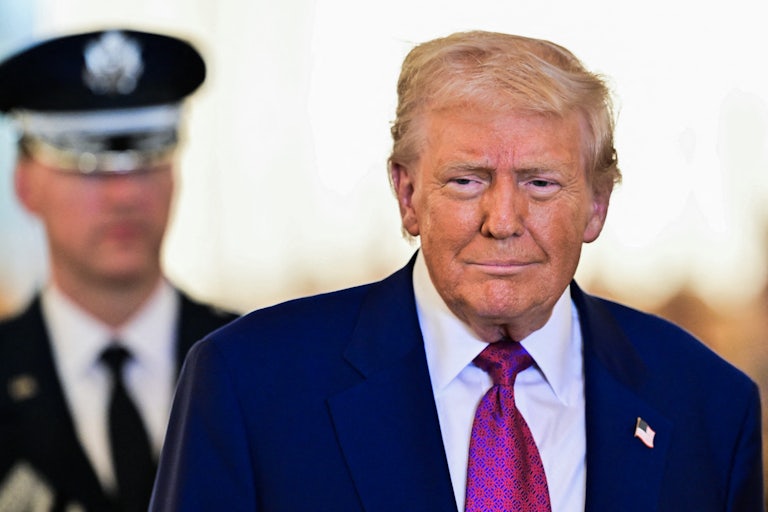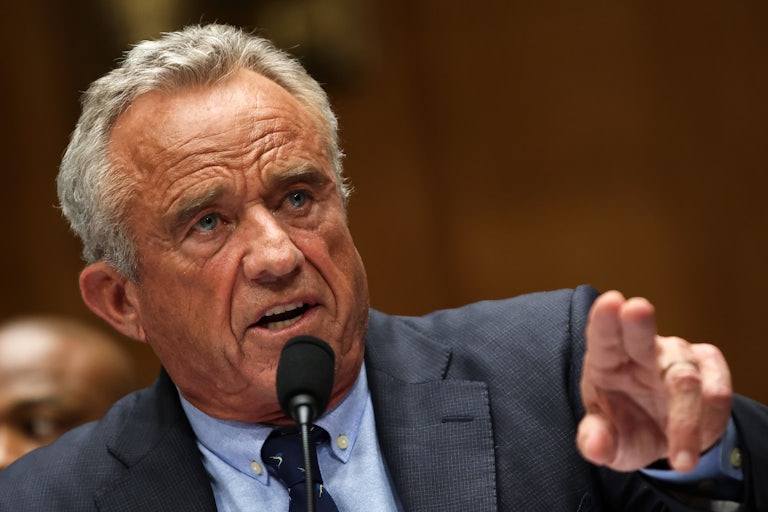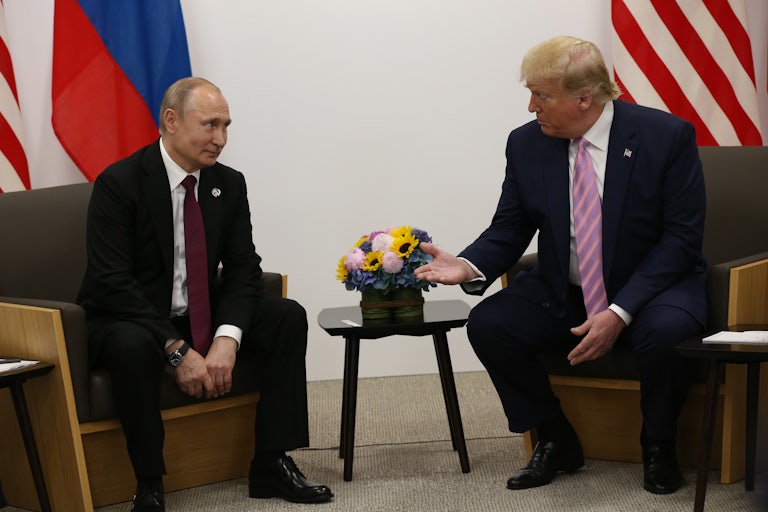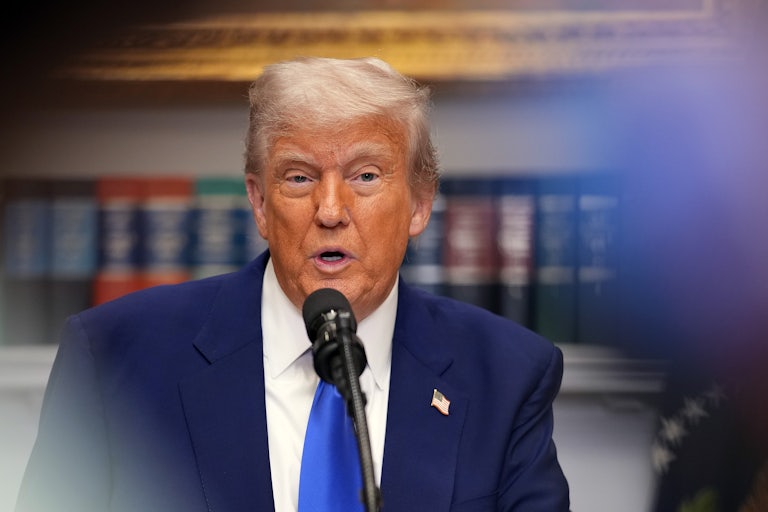Trump’s Legal Win Comes Back to Bite Him With Arrested Wisconsin Judge
Judge Hannah Dugan is using Donald Trump’s own arguments against him in her case.
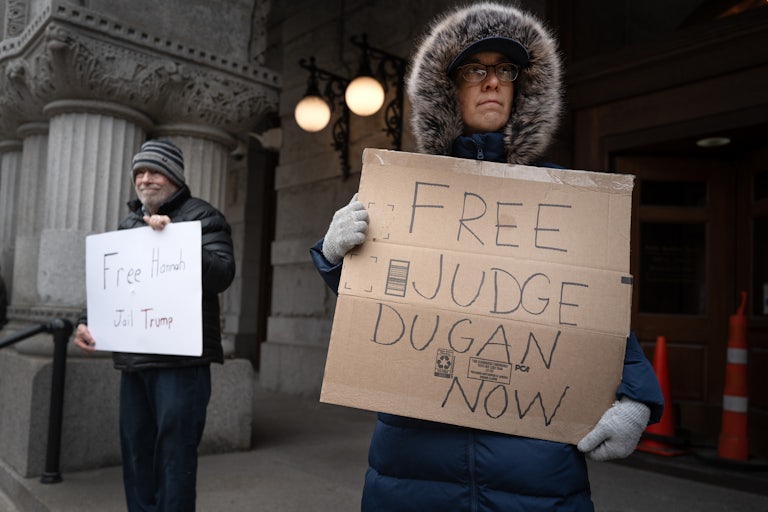
A Wisconsin judge who was indicted for allegedly helping an immigrant evade authorities is using the Supreme Court ruling granting Donald Trump presidential immunity to argue that she also shouldn’t be subject to prosecution.
“The problems with this prosecution are legion, but most immediately, the government cannot prosecute Judge Dugan because she is entitled to judicial immunity for her official acts,” lawyers for Judge Hannah Dugan wrote, in a seven-page motion to dismiss filed Wednesday. “Immunity is not a defense to the prosecution to be determined later by a jury or court; it is an absolute bar to the prosecution at the outset,” they wrote, directly citing Trump v. United States.
Dugan was indicted Tuesday for two federal counts of obstruction, one for concealing a person from discovery and arrest and another for obstruction of federal government proceedings. The government alleges that she directed Eduardo Flores-Ruiz through a side door out of the courtroom, away from federal agents who had arrived at her courthouse to arrest him. Flores-Luiz and his lawyer then traveled through a public hallway (past a couple of DEA agents) to the elevator, and he was eventually apprehended after a short foot chase.
But Dugan’s lawyers argued that it didn’t actually matter what she did, or why she did it. If Dugan had judicial immunity, then she had broad authority over her courtroom, and her motives couldn’t be scrutinized—similarly to Trump’s.
“Even if (contrary to what the trial evidence would show) Judge Dugan took the actions the complaint alleges, these plainly were judicial acts for which she has absolute immunity from criminal prosecution. Judges are empowered to maintain control over their courtrooms specifically and the courthouse generally,” the motion said.
“Judge Dugan’s subjective motivations are irrelevant to immunity. ‘Judges are entitled to absolute immunity for their judicial acts, without regard to the motive with which those acts are allegedly performed,’” the lawyers wrote, again directly citing Trump v. United States, which states: “In dividing official from unofficial conduct, courts may not inquire into the President’s motives.”
“Judge Dugan therefore has both immunity from conviction and immunity from prosecution,” her lawyers argued. The question of whether Dugan has judicial immunity for official acts is one that will have to be answered promptly, because if she does, she cannot be prosecuted full stop.
Dugan’s prosecution is a plainly political one, as the Trump administration would like to punish any judge who gets in the way of the president’s agenda. Attorney General Pam Bondi warned that Dugan’s arrest was only the beginning of a law enforcement crackdown on the judiciary.
